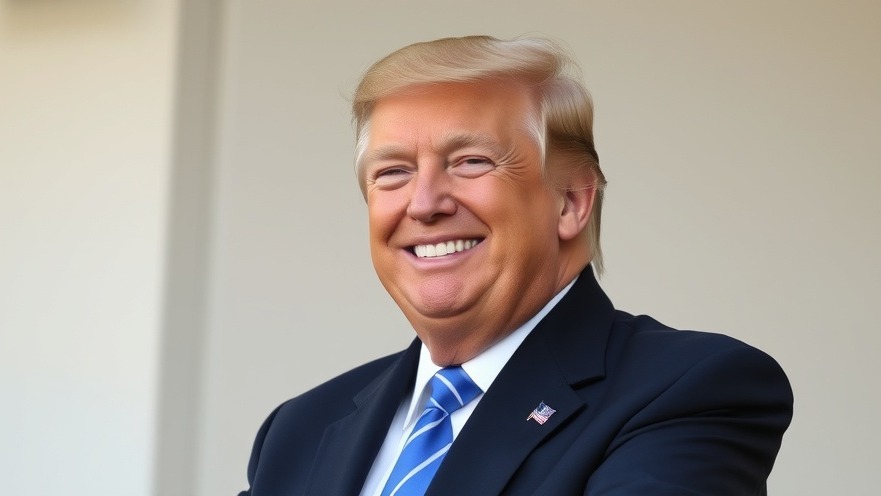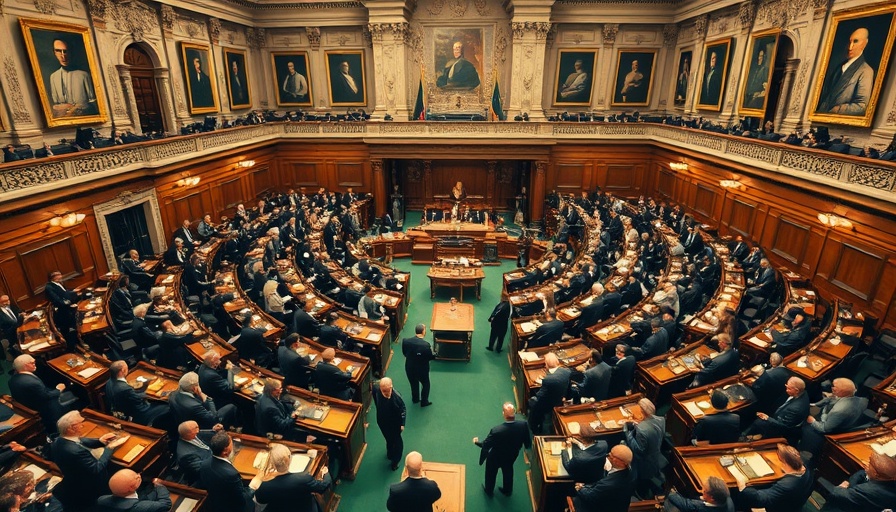
Maxwell's Testimony: What We Learned From the Transcript
Recently released transcripts from Ghislaine Maxwell's Department of Justice testimony have sent ripples through both political and social circles. The documents reveal that Maxwell never observed former President Donald Trump in an 'inappropriate setting' during her time with Jeffrey Epstein. This assertion attempts to clarify some historic rumors that have implicated Trump in Epstein’s notorious circle, suggesting that baseless identification of inappropriate behavior lacked substance.
Connections to Current Political Climate
This testimony comes at a time when the political climate is already charged with controversy. Trump, who continues to be a polarizing figure in the U.S., has been embroiled in numerous legal battles, from ongoing investigations into his business dealings to looking ahead at the 2024 presidential race. Interest in Maxwell's testimony reflects not just public fascination with high-profile figures, but also a significant intersection between celebrity and politics, particularly in how these narratives shape voter perceptions.
Historical Context of the Allegations
These developments are part of a larger narrative surrounding Epstein, a convicted sex offender whose connections reached into elite society including business and politics. Escalating interest in Maxwell's testimony and Trump’s previous association with Epstein illustrates how this dark chapter in American history still has relevance today. By examining these past connections, citizens can better understand the implications for current political landscapes and public trust.
Counterpoints: Challenging the Narrative
Despite Maxwell's testimony, several voices argue there’s still much worth investigating, suggesting that dismissing these connections oversimplifies complex issues of power and exploitation. Critics maintain that even if Trump was not implicated directly by someone involved, it doesn't negate the entire network of complicity that allowed Epstein's actions to persist unchecked for so long. This discussion opens avenues for a robust analysis of accountability for elite figures.
Future Implications for Voter Perception and Media Coverage
The political implications of this case cannot be overstated. As the next presidential election looms, how the media continues to unpack these revelations can sway public opinion. Voter perception might shift as potential candidates navigate these intertwined issues of morality, legality, and behavior in high office. Furthermore, media’s role in shaping narratives around these figures—perceived or unperceived accusations—will be pivotal in public discourse.
Understanding Political Integrity Amidst Scandal
The Maxwell transcript is a reminder of the importance of transparency in politics, particularly as public trust is eroded by scandalous revelations. Political integrity—once a cornerstone of American democracy—faces challenges as voters grapple with questionable associations and the ramifications of unexplored affiliations. This leads to a vital discussion about the standards we hold political figures to and what we, as a society, will accept as accountability.
In conclusion, the details surrounding Maxwell's assertions merit interest from citizens engaged with national news headlines and political news in the U.S. As political narratives evolve, understanding these complex relationships is essential for informed citizenship. Being aware of the interconnections between past and present is vital for addressing systemic issues that affect current events in America. Moving forward, it's imperative to maintain awareness of how political elite navigate their pasts and the implications it has for America’s democratic fabric.
 Add Element
Add Element  Add Row
Add Row 



Write A Comment